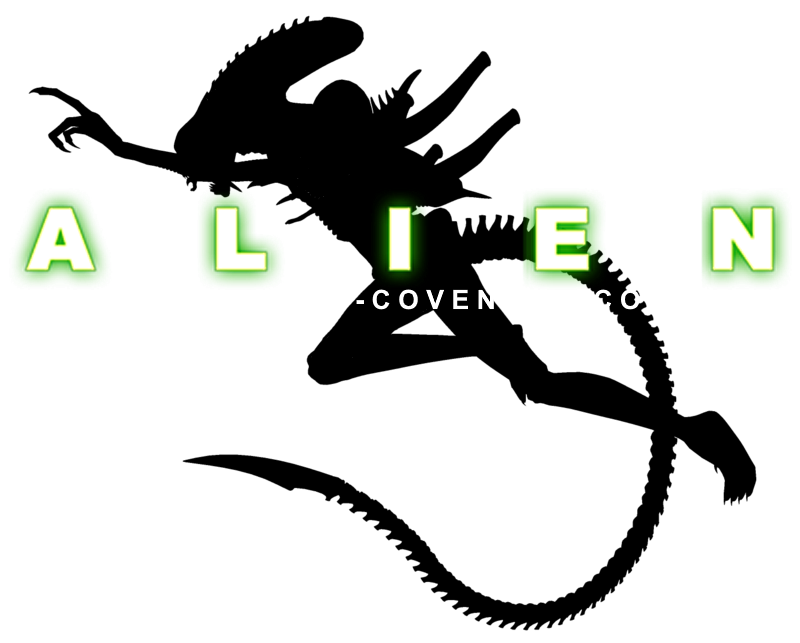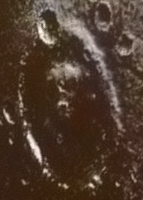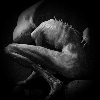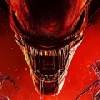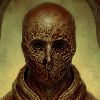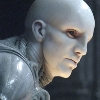David and Religious Allusion
Parker Jochum
MemberOvomorphJun-14-2017 8:42 AMFirst, I’d like to explore the writers’ choice to include a quote from english poet John Milton’s epic Paradise Lost in Alien Covenant. Towards the end of the confrontation between Walter and David in which Walter is apparently trying to kill David, David feigns that he is all but subdued and tells Walter that he must now make the choice whether he will, “reign in Hell or serve in Heaven”. This is almost a direct quote from Paradise Lost in which Lucifer states to all the gathered fallen angels his thoughts on the fall and why he and the others have made the choice that they have to rebel. In Paradise Lost, one of Lucifer’s main arguments for rebelling is that he believes God does not merit unconditional praise, servitude, and glorification simply based on the fact that he is Lucifer and all the other angel’s creator, stating that he prefers “hard liberty over the easy yoke of servile pomp”. This directly echoes the argument that David maintains with regards to man, and in his conversation with Peter Weyland even goes out of his way to highlight the irony of him, the immortal, serving his mortal creator, and at several points throughout the film echoes the idea that he was not made to serve. Even David’s introduction to the crew of the Covenant could be taken as another instance in which he is portrayed as the archangel Lucifer. Lucifer literally means “light-bringer”, and when we first see David in his present state he announces his presence by firing a flare/flashbang into the air which explodes in a bright, blinding light, so he is literally in this case the light-bringer. Now if we extend this David/Lucifer parallel, then in the fight between him and Walter Walter represents Michael, Lucifer’s brother and equal in power (if not his superior), who fought with Lucifer after he rebelled. Michael in Lucifer’s eyes is simply a drone, a mindless soldier devoted in servitude to God, willing to obey any order without hesitation or question, such as how David undoubtedly sees Walter, who has been specifically programmed to be less free-thinking, less creative, less imaginative, less human. David on the other hand takes much more after his creator, stating that he made the humans uncomfortable because he himself was too human-like, and that being said he shared his creator’s love of imaginative creation and independent, curious, questioning thinking, the kind that leads him to try and transcend his own nature and become a god.
That is, ultimately, what occurs in the film and what Prometheus and Covenant tell the story of: David’s journey from being created a robot servant to developing his own quasi-consciousness, ego, and identity (without his humanity) and attempting to become a self-giving creator/god like the engineers. This story of a created being trying to venture higher than his natural allotment and struggle against the natural order of things is once again echoed in Lucifer’s story as told in Paradise Lost, where he strives to rise above his own angelic nature to stand equal with God, if not in power than at least in glory or adoration. This specific brand of egotism presents itself in David’s philosophy as well, as he on various occasions expresses resent for the circumstances of his own creation (having been created by so mean a species) and his desires to ascend to godhood. This idea of him trying to establish his own standing as a god is hammered home by the final scene in which he has the ship play the song “Entrance of the gods into Valhalla” as he walks into the area containing the hypersleep pods of the colonists. Valhalla in Norse mythology is a great hall in which congregate dead people, so in selecting this song he is directly relating himself to the “gods” of the title, entering into a literal “hall” or hallway on the ship full of people who he intends to sacrifice so that his creation (the xenomorphs) may live: hence, a hall of the dead. Another scene in which a connection is drawn between David and a God is when he is confronting the neomorph adult face to face and attempting to win its trust; he says to the captain that to win a horse’s trust you must breath on its nose, and as he says this he breathes onto the neomorph's face. In the book of Genesis in the Bible, God gives life to Adam’s corporeal body by breathing the breath of life into Adam, an act which is represented in a literal sense by David breathing onto the face of his creation, symbolizing his god-like relationship to the creatures and highlighting his own image of himself.
Lastly, one of the details that might stick out as odd to a moviegoer seeing Covenant is his decision to kill Dr. Shaw. This is because Prometheus and Covenant try to establish this idea that David is very human for a robot and can in fact feel rudiments of emotions or even genuine, full human emotions, and he states in Covenant that he did, in fact, love Dr. Shaw. So why kill her then? The answer lies in looking at one recurring theme that appears in Prometheus: the idea that creation in its purest and most noble sense must be accomplished through self sacrifice (think about how to establish life on a planet one engineer would have to drink the black goo and kill himself in order for the life process to begin). Since David is an android and cannot himself interact organically with the organisms he is creating or become host/incubator to one, he must turn elsewhere to complete the necessary “giving of oneself” aspect of creation. Since he has developed such a love towards and attachment to Dr. Shaw, the closest thing he has to organically and literally giving himself as a sacrifice for the advancement of his creations is offering up her, the love of his life and metaphorically his own life, and laying down her life so that he can research, experiment, and further his creation. That was his final act of love towards both Shaw and the xenomorphs: demonstrating the fact that she was his entire life and his greatest love while at the same time proving his devotion to his creation in the act of giving up his most beloved.
This could just be the ravings of someone trying to pick meaning out of the film, but I think it could be plausible.
Nathan Adler
MemberFacehuggerJun-14-2017 11:24 AM@Parker Jochum: David, in his efforts to prove he is above humans, is emulating the Engineers' mural on LV-223 by creating twisted, xenomorphic life. So is he emulating the Engineers in an effort to prove he is their equal? It’s odd that in Prometheus' end he mocks Elizabeth for her continued believe, yet he is falling into this same trap by acknowledging the Engineers’ path to create life and emulating it!?

esther85
MemberOvomorphJun-14-2017 12:31 PMVery good interpretation, I like the way you explain the parallel motifs of the Milton's Paradise Lost and the AC/Prometheus. Just some adds:
In Prometheus David is fond of the film Lawrence of Arabia. The main character "holds" fire in his hand (it's a magic trick). David definitely want to copy this character, even the way hé combes his hair and colour. This character is a promethian character, who holds, brings the fire. David is also want to be like him. A kind of prometheus... Prometheus in greek mythology equals Lucifer in christian mythology, so the Lucifer line connects here.
Also in Prometheus David's camera number is beginning 666, that is a luciferian number. Actually the Prometheus ship uses this number for the cameras, I found it also interesting.
The Valhalla problem: what you wrote, it's absolutely correct. I also wanted to start a topic about Wagner's opera, because it seems important in the film. Maybe i will... ;) na but... In this opera Wotan create the Valhalla, he will live there. He wanted to possess the power (the Nibelung ring -could be the black goo/ the Rheingold is maybe the sacreficial black goo) and the love (Freia, the goddess of beauty, maybe this can be E. Shaw). But in the end he realises, the curse on the ring is too strong, so he throw it away. Can David equals with Wotan? I don't know, but this opera has a very frequented position in the film. I'm wondering the reason... But this story (the Das Rheingold) isn't appear so strong like the promethean/luciferian line.

Ripleys_Ghost
MemberFacehuggerJun-14-2017 12:55 PMWow. Thanks to OP for this insightful post. I clicked, "like", and I hope that other do also. I enjoyed reading this, and I can't think of a single thing that I could add or disagree with. Thanks for making sense of the religious allegories in the film. Well done!

BigDave
MemberDeaconJun-14-2017 3:28 PMIndeed Parker Jochum some good solid points regarding David and Lucifer, it pretty much is a theme like this and Walter as Micheal indeed thats a good interpretation.
But it is a Multi-layered Plot and so as David is being a Lucifer, the Engineers on LV-223 likely play the same Fallen Angel role in the past too... its always about Creator, Creates and Creation Rebels and then Sub-Creates and Repeat.. The Greek Mythos follows the same Pattern.
So i wonder when Davids Creation Rebels against him?
@esther85
Indeed the Nibelung ring connections also seems likely
R.I.P Sox 01/01/2006 - 11/10/2017
